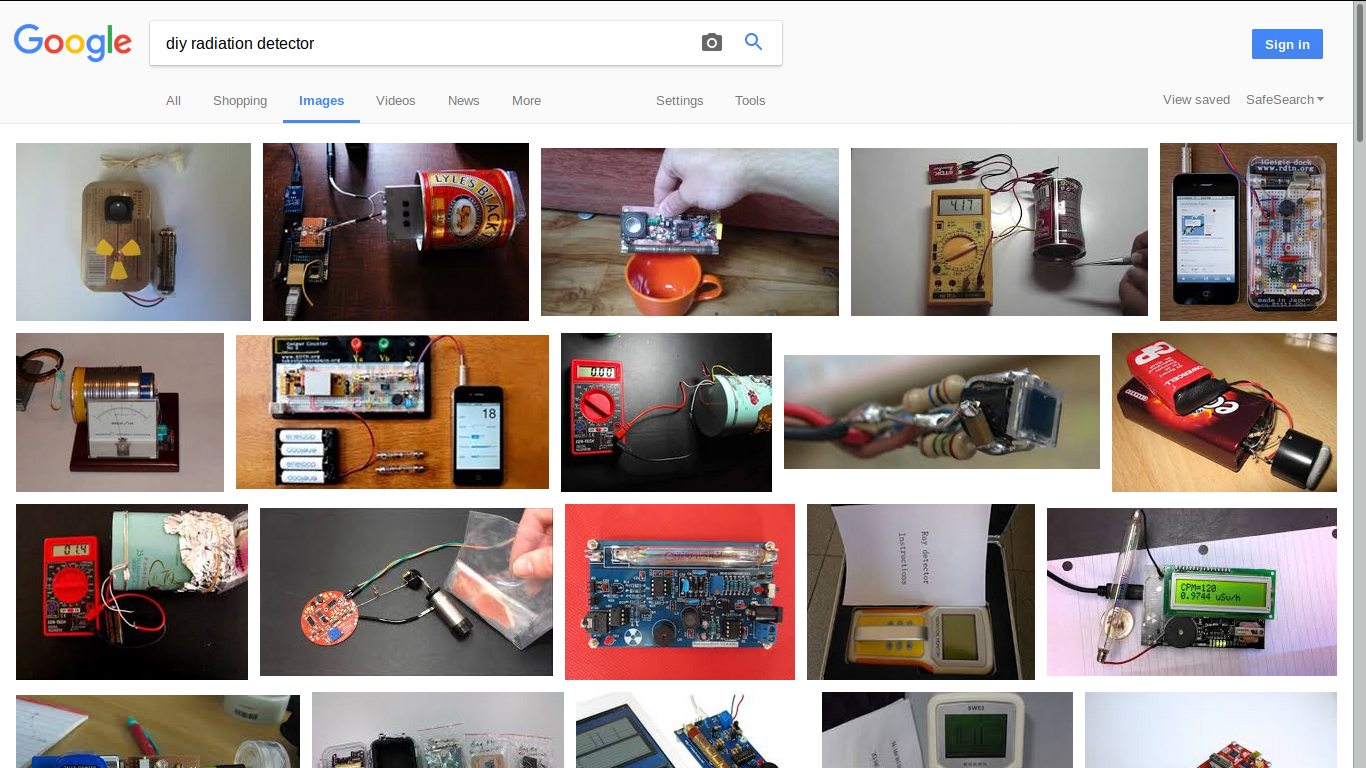I've been there: you've just read that article about the potential danger of some household items being radioactive. You now have a strong need to check your granite countertops, camera lenses, smoke detectors and every weird-color dishes at home - for the sake of safety of course (note: these are very rarely an actual threat).
You quickly find out that radiation detectors are surprisingly expensive. The only affordable options are labeled as "electromagnetic detectors" and don't really measure the harmful ionizing radiation that we want to check for.
As a a maker yourself, avid reader of Hackaday, you go for the next logical option which is to build your own detector. A quick search yields lots of weird and wonderful projects:

You quickly reach the most important page on the subject: a very detailed explanation by Charles Wenzel with a tutorial on how to build your own "ionization chamber" using a tin can, a transistor and a multimeter.
These home made detectors are very cool, and a really nice option if you have the ability and free time to build them. In my case, I spent some time building a DIY detector and actually struggled during the way: it was very difficult to get consistent results. Every tin can was different from the one in the tutorial, the transistors required were not available at any store, the multimeter had too low internal resistance, lots of leakage, then the sensor was affected by static electricity, etc.
It was after being bit by all of these variables, I decided to go ahead and design my own detector. It had to be built only from standard components. No more messing around with recycled tin cans, vintage transistors or cold-war vacuum tubes.
Thanks for reading! Follow this project to get notified of the next updates.
 Carlos Garcia Saura
Carlos Garcia Saura
Discussions
Become a Hackaday.io Member
Create an account to leave a comment. Already have an account? Log In.